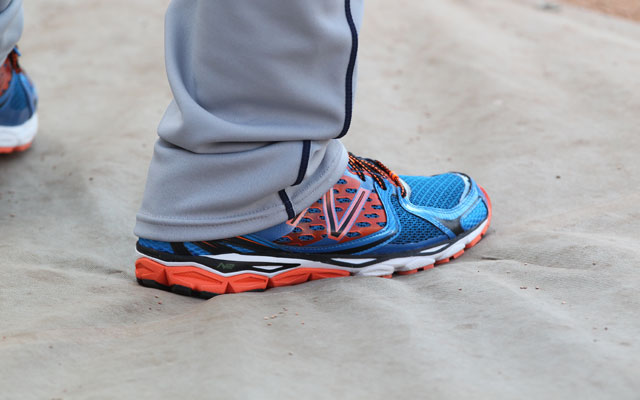America Needs a New Balanced Tariff Structure
Sally Platt /
Where does America get its shoes?
Today, 99 percent of shoes sold in America come from overseas. Imported shoes are taxed at an average rate of 10 percent, with some tariffs as high as 67.5 percent. Inexpensive shoes are taxed at higher rates, a burden for low-income Americans. New Balance is the only major athletic shoe brand still operating factories in the United States, and only 25 percent of their shoes are actually made or assembled on American soil. Other makers have moved completely overseas.
Nike is one of them. And unlike New Balance, the company supports ending tariffs. Sean O’Hollaren, the company’s vice president of government and public affairs, explained why: “A [trade] agreement modernizing the current footwear tariff structure would allow Nike to further reinvest into innovation and maintain our global competitiveness, resulting in more high-paying jobs in the U.S.” Not only that, but reducing tariffs would make shoes less expensive for the average American.
In late July, U.S. Trade Representative Michael Froman visited Norridgewock, Maine, home of one of five New Balance shoe factories in the United States. He heard from workers worried about losing their jobs if the current Trans-Pacific Partnership negotiations result in lower shoe tariffs.
New Balance stresses the importance of keeping the 13,290 people involved in shoe manufacturing in the United States employed. That may be a worthy goal for the company, but it is a costly proposition for consumers. Americans pay around $2 billion in shoe import taxes every year. That works out to more than $140,000 for every shoe manufacturing employee in the U.S.
America needs a new balance in its trade policy, one that respects the needs of all Americans. Tariffs that protect the interests of the few at great cost to the many make our country as a whole poorer and our economy weaker.
Sally Platt is currently a member of the Young Leaders Program at The Heritage Foundation. For more information on interning at Heritage, please click here.

